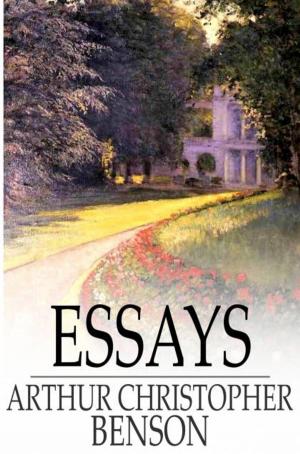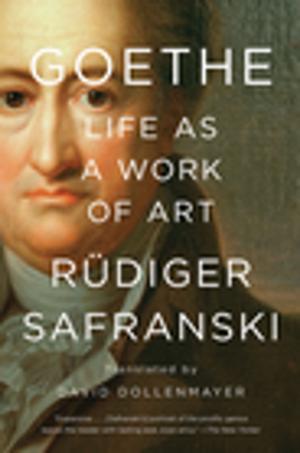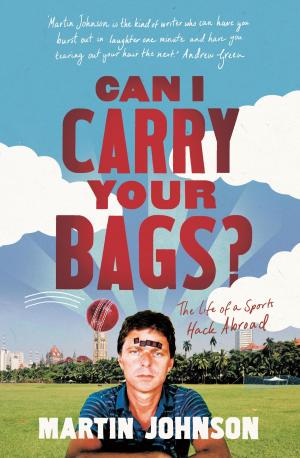| Author: | Ron Burrows | ISBN: | 9781458198600 |
| Publisher: | Ron Burrows | Publication: | May 12, 2011 |
| Imprint: | Smashwords Edition | Language: | English |
| Author: | Ron Burrows |
| ISBN: | 9781458198600 |
| Publisher: | Ron Burrows |
| Publication: | May 12, 2011 |
| Imprint: | Smashwords Edition |
| Language: | English |
With its fifty-seven short, sharp chapters, a la 'Gargantua and Pantagruel,' The Postie And The Priest is a biography about the iconic Father Bob Maguire whose message could well be: "Love thy neighbour but don't become holier than thou whilst doing it." Ron, an impious postie who rides for the South Melbourne Disaster Centre, has no intention of doing that; in fact by introducing two most unlikely characters he indulges his alter-ego's insistence on allowing his imagination a lateral perspective on his perception of the reverent father's life.
The symbiotic relationship between the postie and the priest is evident during the sessions in the rectory when the priest, with his long-legged poodle lolling in an armchair, tells his story to the postie whose interviewing skills have not had the requisite time to develop. With his rich Shakespearean-like use of language, humour and humility, the priest steps down into the millieu of the postie and tells his monologous tales against the background noises of ringing telephones and the door bell constantly buzzing as the dog crunches on chicken necks or charges around the study flinging a rubber hamburger about. The priest is well in that millieu too as friction develops during a heated discussion about the priest's interaction with paedophile priests: despite their friendship this is no hagiography.
As he is regaled with stories about creepy Catholics, Post Office Fleas, lunatics, beekeeping, and a tragic story about a flash priest from Braybrook who built a church in the mud, the postie is always mindful of his red pushbike with its yellow bag of mail leaning innocuously against the front fence because, unbeknown to his superiors, these sessions are held midway through his round.
There are anecdotal stories about posties and people who the postie meets as he pedals around the streets of South Melbourne delivering his mail, an epoch into the times in which both he and the priest live.
As the manuscript develops Father Bob, who says that there isn't much of a story to tell, finds that his interest is piqued by the unusual style of writing of the man he has 'ordained' as a mobile priest; he enjoys being a character in a book full of colourful characters, protagonists who prospective publishers want to eliminate. The reader is in the book-lined study as the duo discuss the vagaries of the publishing world: the insistance by publishers and their editors that the edges of the manuscript be chamferred so that it easily slots into an existing pigeonhole. The postie and the priest refuse to capitulate and the drama showing their determination to get the work published regardless continues to unfold even as the nasty Archbishop plots against the priest in a public display of bullying.
With its fifty-seven short, sharp chapters, a la 'Gargantua and Pantagruel,' The Postie And The Priest is a biography about the iconic Father Bob Maguire whose message could well be: "Love thy neighbour but don't become holier than thou whilst doing it." Ron, an impious postie who rides for the South Melbourne Disaster Centre, has no intention of doing that; in fact by introducing two most unlikely characters he indulges his alter-ego's insistence on allowing his imagination a lateral perspective on his perception of the reverent father's life.
The symbiotic relationship between the postie and the priest is evident during the sessions in the rectory when the priest, with his long-legged poodle lolling in an armchair, tells his story to the postie whose interviewing skills have not had the requisite time to develop. With his rich Shakespearean-like use of language, humour and humility, the priest steps down into the millieu of the postie and tells his monologous tales against the background noises of ringing telephones and the door bell constantly buzzing as the dog crunches on chicken necks or charges around the study flinging a rubber hamburger about. The priest is well in that millieu too as friction develops during a heated discussion about the priest's interaction with paedophile priests: despite their friendship this is no hagiography.
As he is regaled with stories about creepy Catholics, Post Office Fleas, lunatics, beekeeping, and a tragic story about a flash priest from Braybrook who built a church in the mud, the postie is always mindful of his red pushbike with its yellow bag of mail leaning innocuously against the front fence because, unbeknown to his superiors, these sessions are held midway through his round.
There are anecdotal stories about posties and people who the postie meets as he pedals around the streets of South Melbourne delivering his mail, an epoch into the times in which both he and the priest live.
As the manuscript develops Father Bob, who says that there isn't much of a story to tell, finds that his interest is piqued by the unusual style of writing of the man he has 'ordained' as a mobile priest; he enjoys being a character in a book full of colourful characters, protagonists who prospective publishers want to eliminate. The reader is in the book-lined study as the duo discuss the vagaries of the publishing world: the insistance by publishers and their editors that the edges of the manuscript be chamferred so that it easily slots into an existing pigeonhole. The postie and the priest refuse to capitulate and the drama showing their determination to get the work published regardless continues to unfold even as the nasty Archbishop plots against the priest in a public display of bullying.















